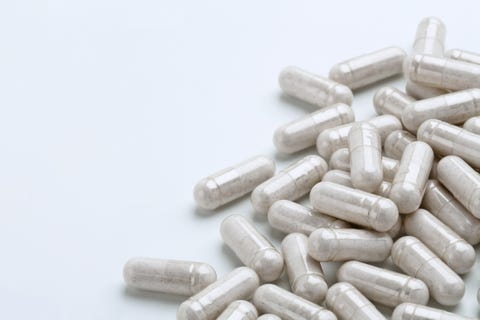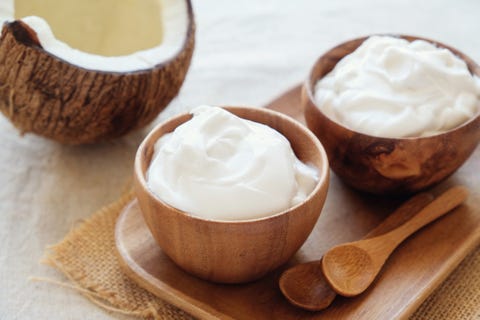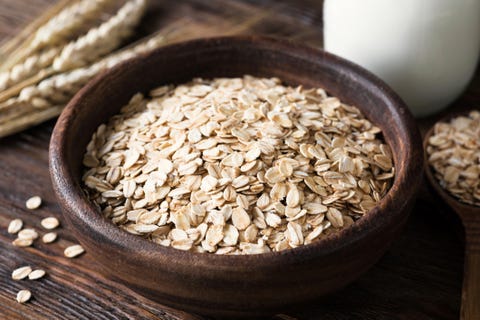Over the years, people have attempted to lose weight via a wide range of unproven methods: injecting pregnancy hormones, taking ephedrine supplements, or chugging lemon juice and maple syrup as part of a “Master Cleanse.” Now, some people are claiming that probiotics can help you lose weight and belly fat. But is this legit, or is the probiotics craze bound to go the way of other diet fads?
What are probiotics?
Probiotics are simply bacteria that are beneficial to our bodies, particularly our digestive systems. You can find them in supplements, but they’re also present in foods like yogurt, kimchi and sauerkraut. Our guts contain a mix of good and bad bacteria, and a healthy supply of probiotics can make the good grow while keeping the bad at bay.
Researchers already know that our guts are important to our overall health, but scientists are now trying to figure out whether our digestive health affects our weight, too.
“Research is exploding right now with how our gut microbiome impacts obesity,” gastroenterology clinical researcher Bethany Doerfler of Northwestern’s School of Medicine tells MensHealth.com.
Some early findings have linked Lactobacillus probiotic strains (which are present in miso, yogurt and kefir) to weight loss. But it’s important to keep one thing in mind.
“We’re still very early in our understanding of our gut biome and how it affects weight,” Dr. Scott Kahan, director of the National Center for Weight and Wellness, explains to MensHealth.com.

Getty Images
What science says about probiotics and weight loss
Kahan says that many studies have found a correlation between good gut bacteria and healthy weight. “In general, heavier patients tend to have more of the unhealthier bacteria, and less of the good, healthier bacteria,” he says. People who are thinner also have a wider range of gut bacteria, possibly indicating the importance of gut diversity to maintaining a healthy weight.
However, Abby Langer, R.D., says experts don’t know whether changes in weight cause differences in gut bacteria or whether it’s the bacteria itself that impacts weight.
“We cannot determine cause and effect,” Langer says to Men’s Health. “We don’t know the whole story.”
But there’s still not enough evidence to suggest that taking probiotics can lead to weight loss, in part because there’s a complicating factor at play: we can’t tell whether people with good gut bacteria have it organically, or if it’s a result of their diets.
“When you consider bacteria, you have to consider two sides of the equation: One side is the bacteria in your gut, and the other is the bacteria in your food sources,” Doerfler says. Additionally, Kahan says that most studies looking at the link between gut bacteria and weight loss have assessed animals, not human subjects.

Getty Images
Some health and nutrition experts suggest that our focus should be less on probiotics, but on prebiotics, the fiber compounds healthy gut bacteria feed on. Sources of prebiotics include fruits, vegetables, and oatmeal — basically, everything mom made you eat. They’re low in calories, meaning they’re beneficial to our waistlines as well as our overall gut health.
“People who weigh less typically have diets with more plant-based foods, which are good for weight loss and have the benefit of growing good bacteria,” saysDoerfler.
Additionally, Doerfler says researchers believe these fiber-rich foods produce fatty acids in our bodies, which are thought to increase levels of GLP 1, a hormone found in the intestines. The more GLP 1 we have, explains Kahan, the less hungry we feel, thus leading to weight loss.

Getty Images
Do any probiotic supplements work for weight loss?
It probably won’t hurt to take probiotic supplements, but they’re unlikely to help you achieve a miraculous weight loss transformation either, according to Doerfler and Kahan.
“I don’t think a probiotic is by any means a magic pill,” says Kahan.
Probiotic supplements also aren’t regulated by the Food and Drug Administration, meaning there’s little quality control on the market. Instead, both experts agree that fixing your diet is the best way to both lose weight and make your gut healthy.
That said, there’s nothing wrong with taking probiotics—just beware of foods claiming to contain them, says Langer. These items aren’t regulated by the FDA, so there’s no telling exactly what probiotic is included and in what quantities. And some picks, like kombucha and yogurt, don’t always contain probiotics and can be high in sugar, she warns.
So what should I eat for weight loss and gut health?
Doerfler recommends the following plan for people who want to drop a few pounds while improving their digestive health.
1) Eat at least one serving of oats and barley a day. She explains these carbs are more beneficial than other types of whole grains because they are loaded with soluble fiber, which helps you poop.
2) Incorporate three to four servings of fruit and three to six servings of vegetables into your meals. You can easily achieve this by eating one serving of fruit at every meal. Veggie intake can be split up between lunch and dinner.
3) Eat one serving of yogurt each day for a healthy dose of probiotics.
Source: Read Full Article
